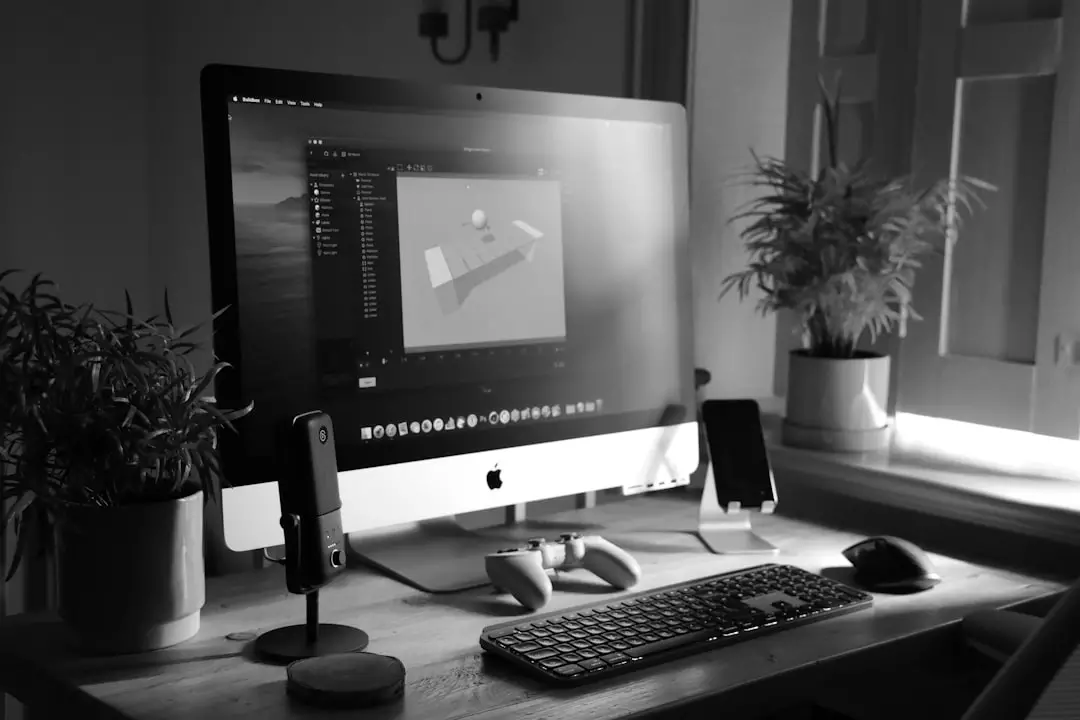Whether you’re a seasoned professional or a passionate hobbyist, having a visually striking online portfolio is essential to showcase your photography skills. In today’s visual-first digital environment, choosing the right website builder can make a world of difference in how your art is presented and perceived. The right platform not only highlights your work but also provides seamless navigation, mobile responsiveness, and attractive templates specifically tailored for photographers.
TL;DR
Looking for the best website builders to create your photography portfolio? This article highlights seven top platforms, each with its own strengths in design flexibility, image presentation, and ease of use. Whether you want full customization, high-performance image hosting, or drag-and-drop convenience, there’s an option here suited to your needs. Read on to find the perfect match for your photography brand.
1. Squarespace
Best for: All-in-one solution with sleek templates and strong visual focus.
Squarespace is a favorite among photographers for good reason. Its elegant, modern templates are specifically built to support high-resolution imagery and portfolio layouts. With a minimalist aesthetic, Squarespace lets your photography speak for itself, offering distraction-free designs that are also customizable.
- Features: Built-in photo gallery options, image optimization, e-commerce capabilities.
- Pros: Mobile-responsive design, integrated blogging platform, excellent customer support.
- Cons: Slightly limited third-party integrations, especially for niche services.

2. Wix
Best for: Total design freedom with drag-and-drop builder.
If you’re looking for complete creative control, Wix is an excellent option. With over 500 templates and a robust drag-and-drop editor, Wix enables photographers to build portfolios that truly reflect their aesthetic without needing to code.
- Features: Advanced image galleries, video backgrounds, customizable grid layouts.
- Pros: Extremely flexible design options, built-in SEO tools, large app store for integrations.
- Cons: Steeper learning curve for beginners, can be performance-heavy.
Wix also offers a dedicated photography section with templates tailored for events, fashion, fine art, and travel photography, ideal for niche-focused portfolios.
3. Format
Best for: Professional photographers needing quick yet stunning portfolios.
Format is purpose-built for creatives, especially photographers. With portfolio-first layouts and minimal fluff, it focuses all attention on your work. The platform supports client proofing galleries, watermarking, and image licensing—game-changing features for photographers who work commercially.
- Features: Client proofing tools, image watermarking, store integration for selling prints.
- Pros: Clean and professional design, photography-focused tools, quick setup.
- Cons: Less customizable than Wix or WordPress, fewer third-party extensions.
If you’re interested in balancing simplicity with functionality, Format might be your go-to.

4. SmugMug
Best for: Monetizing photos through prints and digital downloads.
SmugMug is more than just a portfolio builder—it’s a complete business platform for photographers. With unlimited photo storage and stunning full-screen displays, it’s ideal for high-volume photographers looking to preserve image quality online.
- Features: Built-in e-commerce for selling prints and downloads, watermarking, secure image storage.
- Pros: Excellent image hosting, multiple revenue options, partner labs for print fulfillment.
- Cons: Design templates aren’t as flexible as competitors, no blogging features.
For photographers aiming to commercialize their work directly through their portfolios, SmugMug provides everything you need under one umbrella.
5. Adobe Portfolio
Best for: Adobe users who want seamless integration.
If you’re already immersed in the Adobe ecosystem via Lightroom or Photoshop, Adobe Portfolio is a logical choice. Offered as part of the Adobe Creative Cloud subscription, it allows rapid building of beautiful, image-centric websites.
- Features: Direct Lightroom integration, high-quality image displays, auto-sync from Adobe tools.
- Pros: Free with Adobe CC, effortless uploads from Lightroom, elegant templates.
- Cons: Limited customization, lacks advanced features like blogging or commerce.
Adobe Portfolio is best for artists looking for a clean presentation without needing to handle technical headaches.
6. Zenfolio
Best for: Photographers seeking workflow automation and client onboarding tools.
Zenfolio is designed with working professionals in mind. It combines portfolio presentation with powerful client management tools like scheduling, invoicing, and secure photo delivery solutions.
- Features: Photo proofing, lead capture, client communication automations.
- Pros: Streamlined client handling, integrated sales tools, service packages for photographers.
- Cons: User interface feels dated compared to newer platforms.
Zenfolio is ideal for portrait, wedding, and commercial photographers looking to manage their workflow from one central dashboard.

7. WordPress with Elementor
Best for: Advanced customization with full control over design and features.
WordPress isn’t just for bloggers—it powers a significant portion of the web and is highly versatile with the right builder. Combined with a design plugin like Elementor, WordPress becomes a powerhouse for photographers who want high-level customization.
- Features: Thousands of themes, plugin infrastructure, complete control over SEO and layouts.
- Pros: Unmatched flexibility, strong community support, plenty of photography-specific themes.
- Cons: Requires technical knowledge, needs hosting setup, potential maintenance issues.
WordPress is the go-to for tech-savvy users or those hiring web developers to craft a tailored site experience.
Final Thoughts: Choosing the Right Builder for Your Needs
With so many impressive options available, selecting the best photography portfolio builder depends on your personal needs, goals, and budget.
Here’s a quick recap:
- Squarespace – For stunning, balanced portfolios with minimal effort.
- Wix – For unlimited creative freedom and customization potential.
- Format – For quick, professional setups designed for photographers.
- SmugMug – Best for selling and protecting high-quality images.
- Adobe Portfolio – Ideal for Creative Cloud users wanting rapid setup.
- Zenfolio – Perfect for managing clients alongside showcasing photos.
- WordPress + Elementor – Maximum flexibility for long-term growth.
Before committing, take advantage of free trials and demos. Upload a few photos, play around with templates, and ensure the builder aligns with your brand and workflow. After all, your online portfolio is more than a collection of images—it’s your visual handshake with the world.
